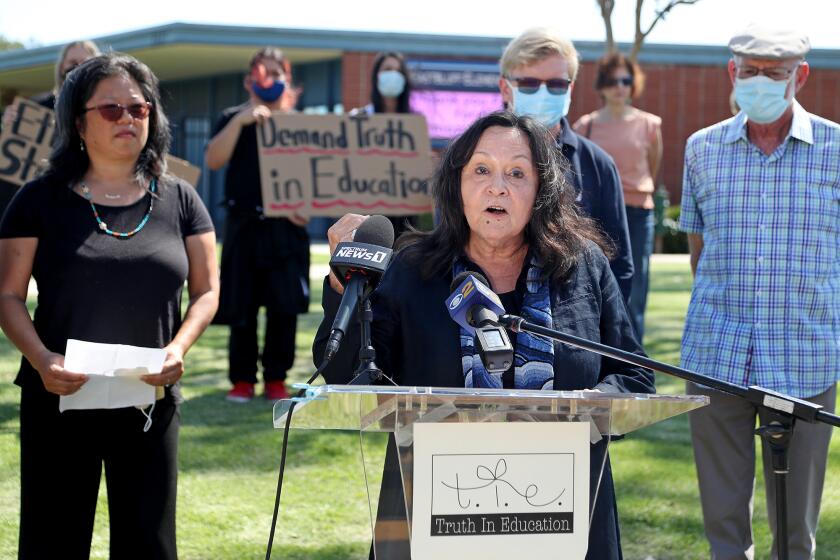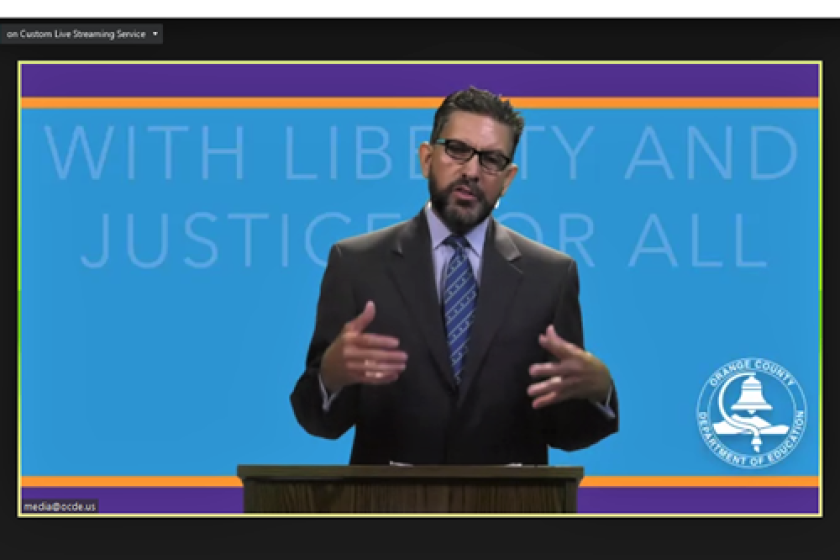O.C. Ed Board forum panelists warn of dangers they see in teaching critical race theory in schools
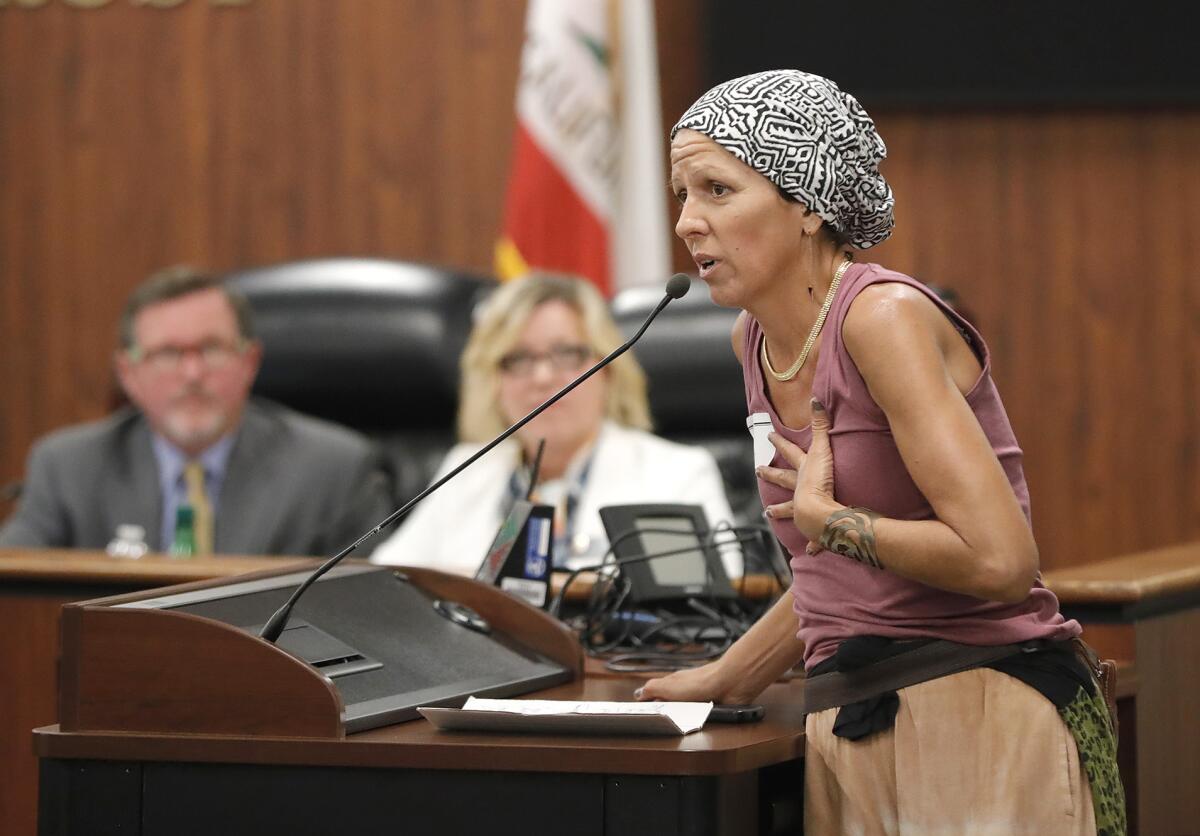
- Share via
California’s new ethnic studies curriculum — a set of guidelines for introducing concepts of racism, equity and justice in K-12 classrooms — has drawn fierce opposition by some in Orange County who fear such instruction will further divide students based on race.
A discussion Tuesday hosted by the county’s Board of Education aimed to provide a forum for parents to express concerns and questions about the curriculum and hear from a panel of scholars and experts on the curriculum and whether it would incorporate tenets of critical race theory.
“In the Orange County community, interest and inquiries into the subject matter and its possible ties with critical race theory are growing exponentially,” Board President Mari Barke said in a press conference before the forum. “Our community members and taxpayers deserve an open, transparent dialog on these two important topics.”
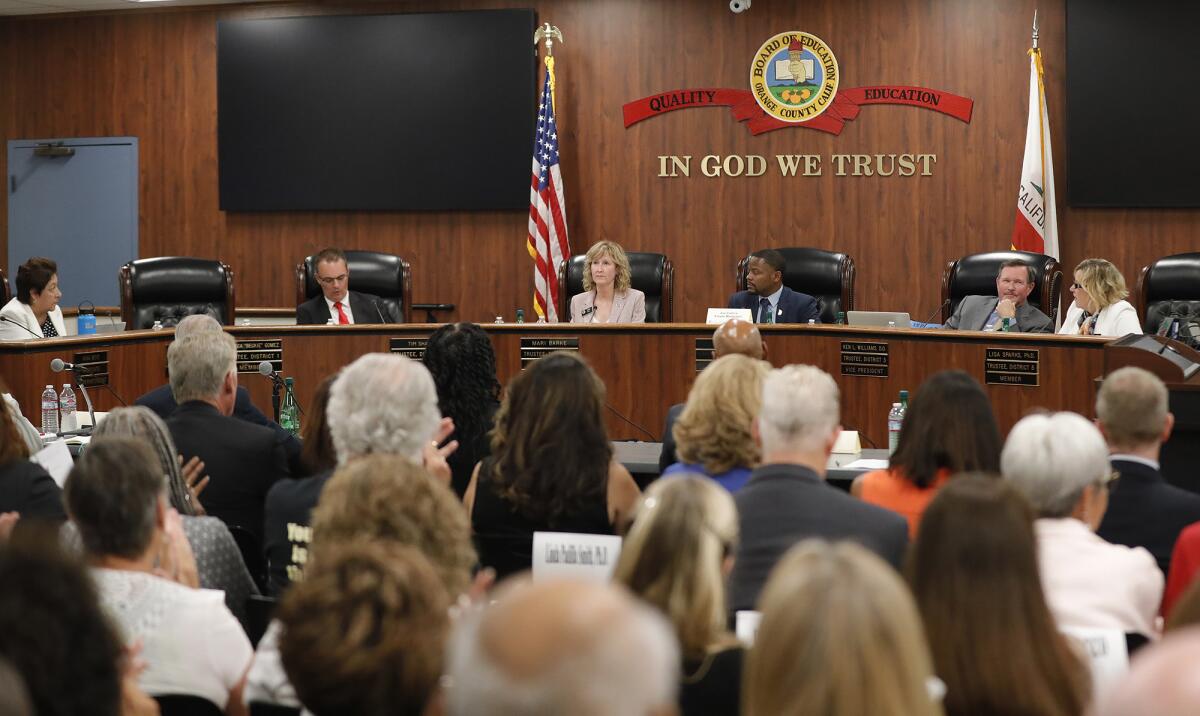
The event created some controversy Monday, however, after one scheduled speaker, Cal State Northridge professor Theresa Montaño, resigned after discovering her fellow panelists mainly had anti-ethnic-studies leanings.
“If I had felt that tonight was going to open the door to meaningful dialogue, and a meaningful exchange of how to implement ethnic studies … I would have attended,” she said Tuesday.
A community coalition held a press conference on Tuesday to voice opposition to the Orange County Board of Education’s controversial forums on ethnic studies and critical race theory.
Inside the boardroom, passions ran high as parents expressed their concern at the notion of young children learning about white privilege, oppression and system racism. None of them defended ethnic studies in the classroom.
Linda Padilla-Smyth, mother of two biracial daughters, worried the curriculum would divide students by teaching them to cast white people as oppressors and people of color as victims.
“I do not want my children to hate either side of their heritage,” she said. “Sacramento [officials have] taken it upon themselves to indoctrinate our children to areas that are sensitive and require deep thought and care.”
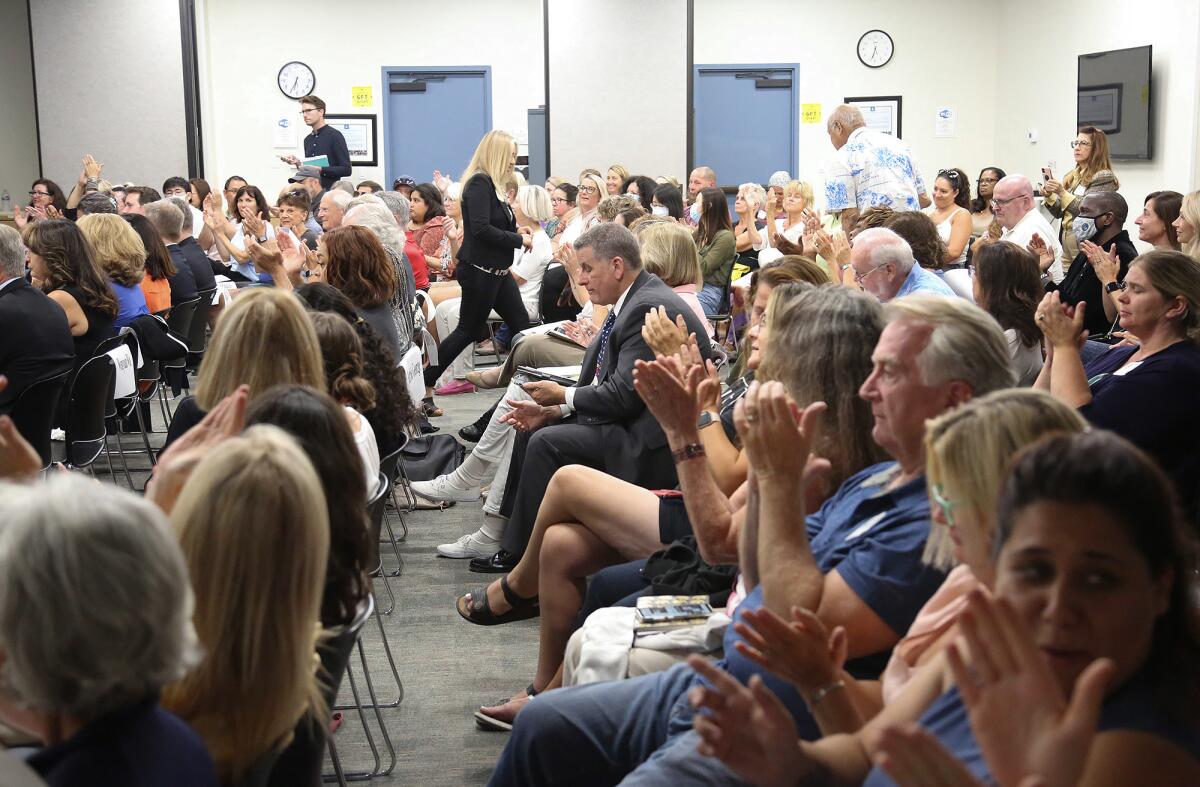
Catherine DeCeglie, whose two children attend school in Huntington Beach, called critical race theory an “evil ideology” that would only wither kids’ confidence and motivation to do well in school.
“But maybe that’s the objective,” she continued. “You don’t want our Black, brown and biracial students to succeed, and you want to kick the white students in the teeth for something they have no control over.”
Walter H. Myers III, adjunct faculty member for Biola University’s Master of Arts in Science & Religion program, spoke on how critical theory began as an idea that drew from previous philosophies, including Marxism, to explain societal structures of privilege and power.
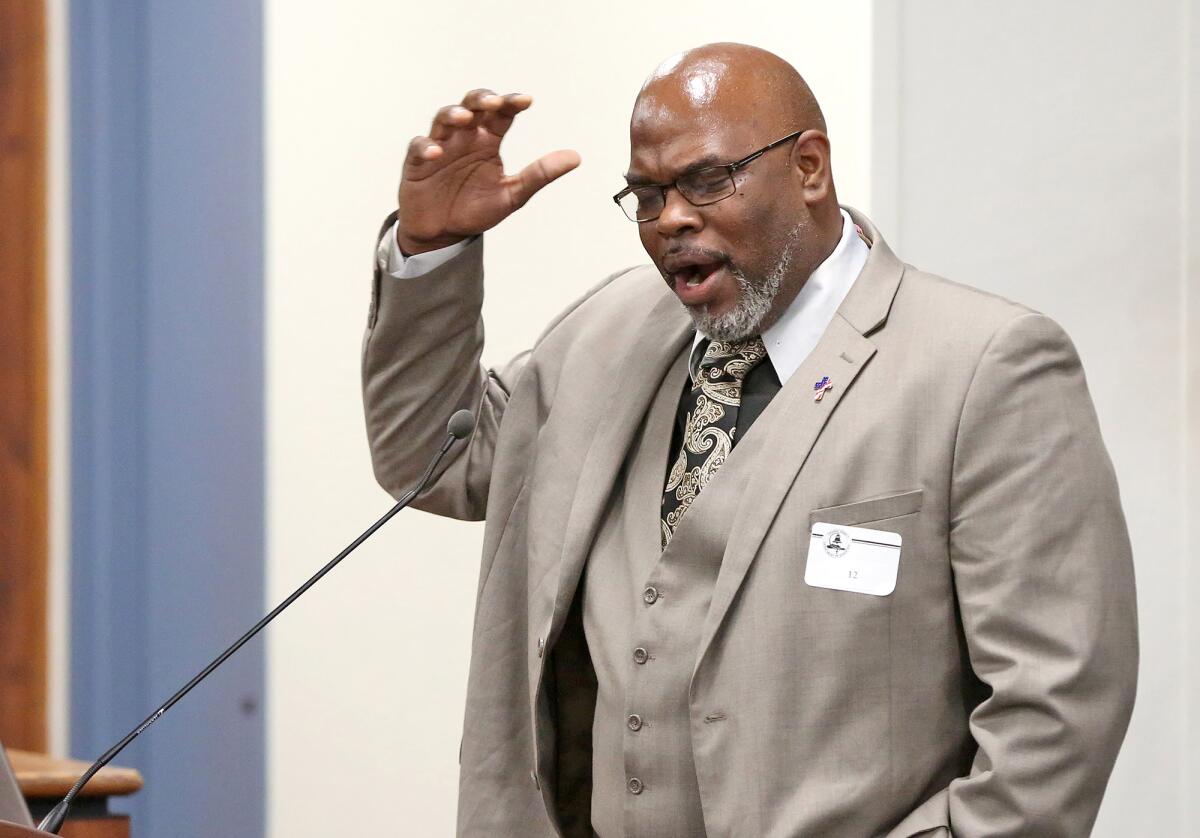
By the 1970s, academics began looking at American legal systems and racial inequality through a similar lens, considering systems built and maintained by oppressors and leveraged against the oppressed.
Such theorists, he continued, rejected equal opportunity, merit and color blindness as myths perpetuated by those in power and were antithetical to the civil rights movement.
“CRT argues that America’s legal, economic and political systems are inextricably racist,” Myers said. “It is no longer an academic exercise, but it is a philosophy with real-life consequences.”
Others attempted to distinguish critical race theory from the broader field of ethnic studies. Brandy Shufutinsky, a social worker, researcher and member of the Alliance for Constructive Ethnic Studies, advocated for a curriculum that was more balanced and inclusive and less politicized.
“Constructive ethnic studies does not put students in the middle of a left-wing versus right-wing tug-of-war,” Shufutinsky said. “Racism and discrimination are approached. However, students are not held responsible for the sins of their foremothers and forefathers.”
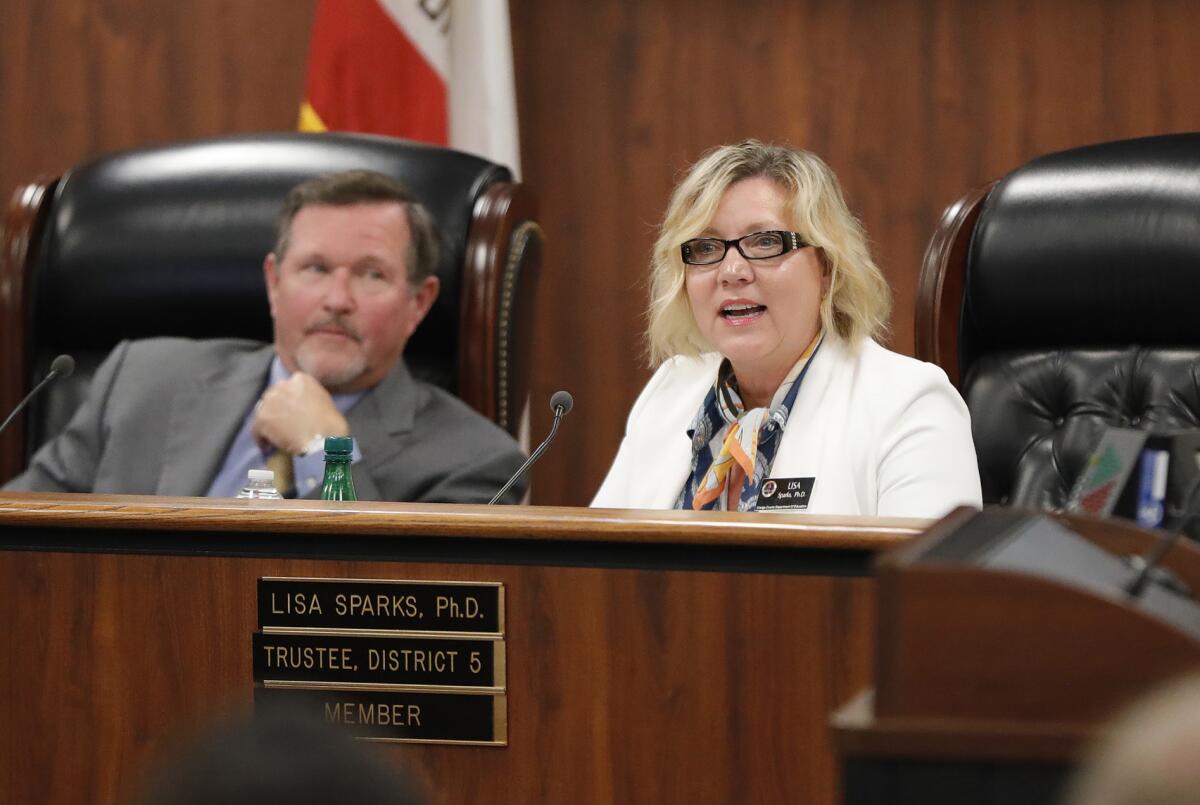
Maimon Schwarzschild, a law professor at the University of San Diego, discussed how school districts who expose students and teachers to racialist or racially abusive lessons and curricula may be legally liable under certain federal and state anti-discrimination statutes, including the Civil Rights Act of 1964.
“I urge the board, at the very least, to ascertain as fully and accurately as possible what is being taught and inculcated and in what ways in the county public’s school systems, and to ensure that parents and citizens have a full opportunity to be informed of the education — or possible miseducation — being provided in Orange County.”
Wednesday’s virtual forum preceded two similar panel discussions being hosted by the Orange County Board of Education on Tuesday and Aug. 24.
Speaker Wenyuan Wu, invited to the panel after Mantaño’s resignation, is executive director of the Californians for Equal Rights Foundation which, in part, helps parents analyze policies and programs being considered by local school boards.
She advised residents to learn more about what’s being adopted by school boards and being taught in local classrooms and advocate for programs they wish to see.
“It is time that ordinary people stand up and demand a public education system to meet the expectations of our communities and the 21st-century global society. We’re facing a well-funded and well-organized battlefront of ideologs, activists, corporate elites, political establishments and unions. However, we are on the right side of history.”
Tuesday’s forum was the first of two — another panel discussion is scheduled for Aug. 24.
All the latest on Orange County from Orange County.
Get our free TimesOC newsletter.
You may occasionally receive promotional content from the Daily Pilot.
